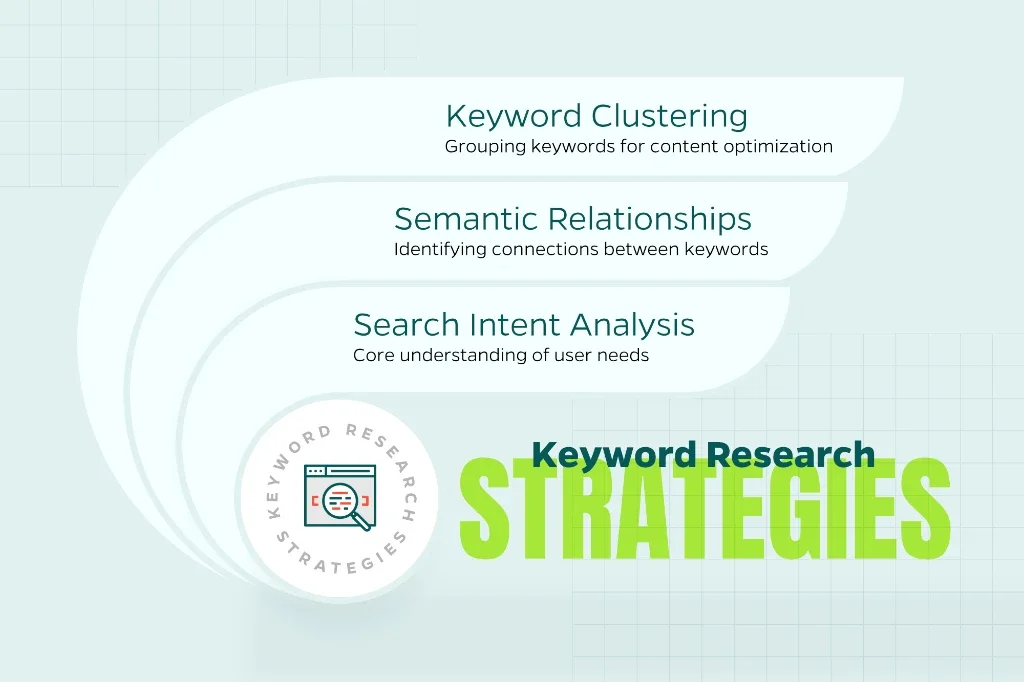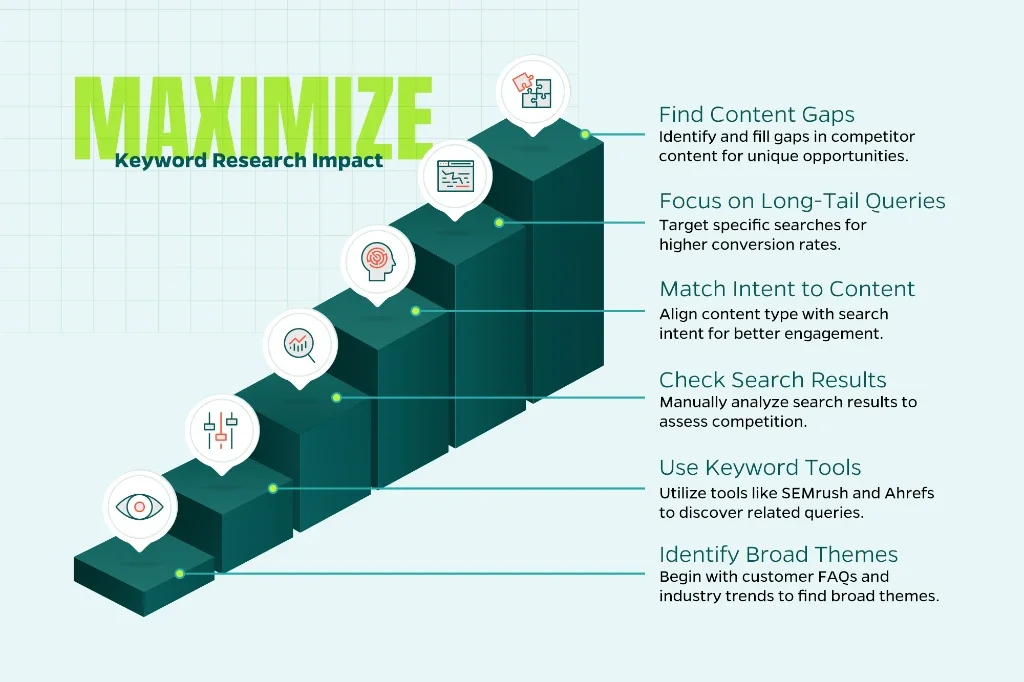“Keyword research is dead.” It’s an attention-grabbing statement. But like most marketing hot takes, it’s only partly true. Yes, SEO has changed. Voice search, AI-driven content creation, and Google’s smarter algorithms have shifted the way we think about ranking. Search is no longer just about matching an exact phrase — it’s about understanding intent.
Mark Twain once said, “reports of my death are greatly exaggerated.” The same applies to keyword research. It’s not dead; it’s simply evolved. And if you abandon keyword research entirely, you’re throwing away one of the most reliable roadmaps to understanding your audience’s needs.
The Evolution of Keyword Research
Remember the early 2000s, when ranking could be as simple as cramming the same term into a page 20 times? The result was awkward, barely readable content that served search engines instead of humans. When people talk about a shift in search, they’re likely referring to the demise of keyword-stuffing stupidity. In fact, Google began putting an end to it with algorithm updates like Panda in 2011. Since that time, keyword research has evolved in notable ways:
- Google now understands language better. Major updates like RankBrain (2015), BERT (2019), and MUM (2021) gave Google the ability to process natural language more like humans do. This made exact keyword matches far less critical than they once were.
- Search has become more conversational. With voice search growing rapidly—over 27% of the online population uses it monthly—queries often sound like actual conversations rather than the choppy keyword phrases.
- Topics began overshadowing individual terms. The SEO world shifted toward concepts like “topic clusters” and “content hubs,” which some interpreted as the final nail in keyword research’s coffin.
The reality is none of these changes make keyword research irrelevant. They just changed what effective keyword research looks like.
What Keyword Research Really Means Today
Think of modern keyword research like GPS navigation. A decade ago, it provided turn-by-turn directions with exact-match keywords. Today, it offers a satellite view of the entire landscape—showing you the main routes, alternate paths, and interesting stops along the way.
Modern keyword research encompasses:
Search intent analysis. Understanding whether users want to buy something, learn about a topic, compare options, or simply navigate to a specific website.
Semantic relationships. Identifying related terms, synonyms, and connected concepts that help search engines grasp the full scope of your topic.
Keyword clustering. Grouping related queries so a single piece of content can rank for multiple search variations.

Here’s a practical example: If your target term is “best laptop for students,” your cluster might include:
- “affordable student laptops”
- “MacBook vs Chromebook for college”
- “how to choose a laptop for school”
- “student laptop buying guide”
Together, these variations help build topical authority and capture a much wider audience than any single keyword could.
Why Keyword Research Still Matters (A Lot)
Even with AI and semantic search revolutionizing the game, keyword research remains critical:
- It keeps you aligned with actual market demand. There’s no point creating brilliant content that nobody is searching for. Keyword research tells you what people want to know.
- It helps prioritize your efforts. If two blog topics each require eight hours to produce, but one has 10x the search volume with lower competition, the choice becomes obvious.
- It identifies quick wins. Low-competition, high-intent terms can drive targeted traffic relatively quickly—perfect for proving ROI while you work on bigger content projects.
- It makes performance measurable. Tracking keyword rankings over time remains one of the most concrete ways to gauge SEO progress and demonstrate value.
Without keyword research, content marketing becomes a guessing game — and that’s a costly gamble.
How to Do Modern Keyword Research Effectively
Want to maximize your keyword research impact in 2025? Try the following steps:
- Start with topics, then drill down. Begin with customer FAQs, input from your sales team, and industry trends to identify broad themes. Then use tools like SEMrush, Ahrefs, or Google Keyword Planner to discover related queries within those themes.
- Manually check the search results. A keyword might look promising in your research tool, but if the first page is dominated by Amazon, Wikipedia, and major brands, you’ll have an uphill battle.
- Match search intent to content type. Transactional queries (“buy noise-cancelling headphones”) need product pages or buying guides. Informational queries (“how do noise-cancelling headphones work”) need educational blog posts or detailed guides.
- Don’t ignore long-tail queries. These specific searches often convert better because they capture precise needs. “Best noise-cancelling headphones for airplane travel” is much more targeted than just “noise-cancelling headphones.”
- Hunt for gaps in competitor content. If a competitor ranks well for “how to choose a laptop,” check whether they’ve covered more specific angles like “laptop features for engineering students” or “budget laptops for graphic design.”

By blending data with human insight, you create content that’s both discoverable and genuinely useful.
The Future of Keyword Research
Going forward several trends will shape how we approach keyword research:
- AI will enhance keyword discovery. Natural language processing tools can uncover question-based searches, entity relationships, and intent signals faster than manual research.
- E-E-A-T will matter more. Google’s emphasis on Experience, Expertise, Authoritativeness, and Trustworthiness means keywords must live in content backed by credible, authoritative sources.
- Keywords will integrate into semantic SEO. Instead of chasing one keyword per page, marketers will target topic ecosystems, building content hubs that naturally rank for dozens or hundreds of related terms.
Bottom Line
Keyword research isn’t dead — it’s grown up.
The old playbook of chasing a single term and over-using it won’t get you far today. But understanding the words and phrases your audience uses, how they ask questions, and what they expect to find, remains the foundation of a strong SEO strategy. The key is adapting your approach: focus on intent over exact matches, embrace semantic relationships, and treat keyword research as a living, evolving process. Do that, and it will continue delivering results for years to come.
Want to learn more about this? Contact our experts at Straight North. We can help give you the guidance to bring your digital marketing results to the next level.








